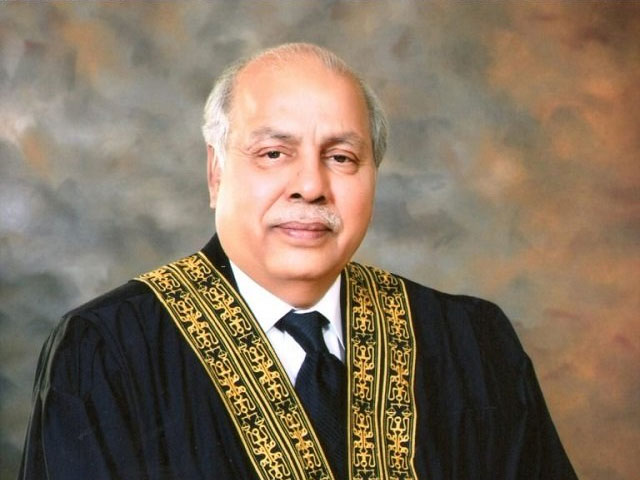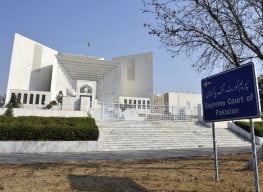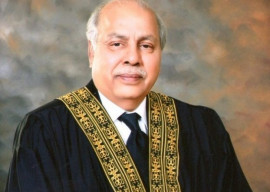
In the backdrop of the ongoing clash between bench and bar regarding judges’ appointment, Chief Justice of Pakistan (CJP) Gulzar Ahmed recently held a meeting with representatives of superior bars.
The Judicial Commission of Pakistan (JCP) is responsible for the appointment of judges to the Supreme Court and five high courts of the country. The CJP also heads the commission as its chairman.
The body also comprises four senior most judges of the Supreme Court, a former judge, the federal law minister, the attorney general for Pakistan and a senior advocate nominated by the Pakistan Bar Council.
The provincial and Islamabad bar councils each nominate a representative as a JCP member.
Last month, superior bars staged a protest and boycotted Supreme Court proceedings on the occasion of the JCP meeting to consider the nomination of Lahore High Court’s Justice Ayesha Malik for her appointment as an SC judge.
Later, CJP Gulzar in his speech on the eve of the new judicial year said the protest organised by the lawyers’ community on September 9 against the appointment of junior judges to the SC was “uncalled for”.
The CJP said even though he was “always” ready to meet the representatives of the lawyers’ community for an amicable solution to their problems, this time no one had approached him for the appointment of judges.
Khyber-Pakhtunkhwa Bar Council representative Ahmed Farooq in the JCP wrote a letter to the CJP to accept his invitation for dialogue.
READ CJP forms special bench to hear appeal on sacked employees’ case
Later, the representatives of superior bars were invited to meet the CJP on October 20.
A senior bar leader told The Express Tribune that the chief justice had agreed to notify a committee of JCP members to consider the superior bars’ proposals for amendments to the commission’s rules. It is learnt that the CJP might summon a full house meeting of the commission to discuss the proposed amendments to the JCP Rules 2010.
Sources told The Express Tribune that during the meeting, superior bars representatives faced a setback when the Punjab Bar Council member supported the nomination of LHC female judge Justice Ayesha Malik as an SC judge. The CJP even hinted at again initiating the name of Justice Ayesha Malik next month.
However, the superior bars are still insisting that seniority principle should be followed in the appointment of SC judges.
The superior bars representatives in their draft have proposed addition of a new clause in the JCP rules for “meaningful consultation” with the bar representatives concerned before initiation or sending names to the commission for appointment of a judge.
The consultation will be made by the respective chief justice.
It is proposed that bars representative in the JCP should have the right to recommend any name for appointment as a judge.
The inclusion of a new clause for permitting the commission to summon nominees for a personal hearing at a JCP meeting has also been suggested.
The committee has also suggested amendments to the JCP Rules 6 and 8 to end the “discretionary” powers of the JCP chairman – the chief justice of Pakistan – in the process of the appointment of judges.
In 2013, the PBC had also proposed a number of amendments to the JCP rules, calling for transferring discretionary powers on the appointment of superior court judges from the chairman to the commission.
Even former CJs had formed special committees to consider the proposed amendments, but no result came out.


1732274008-0/Ariana-Grande-and-Kristin-Chenoweth-(1)1732274008-0-165x106.webp)



1732270499-0/Express-Tribune-(7)1732270499-0-270x192.webp)
1732267715-0/BeFunk_§_]__-(32)1732267715-0.jpg)

1732263788-0/BeFunk_§_]__-(30)1732263788-0.jpg)
1732268955-0/BeFunk_§_]__-(33)1732268955-0.jpg)











COMMENTS
Comments are moderated and generally will be posted if they are on-topic and not abusive.
For more information, please see our Comments FAQ